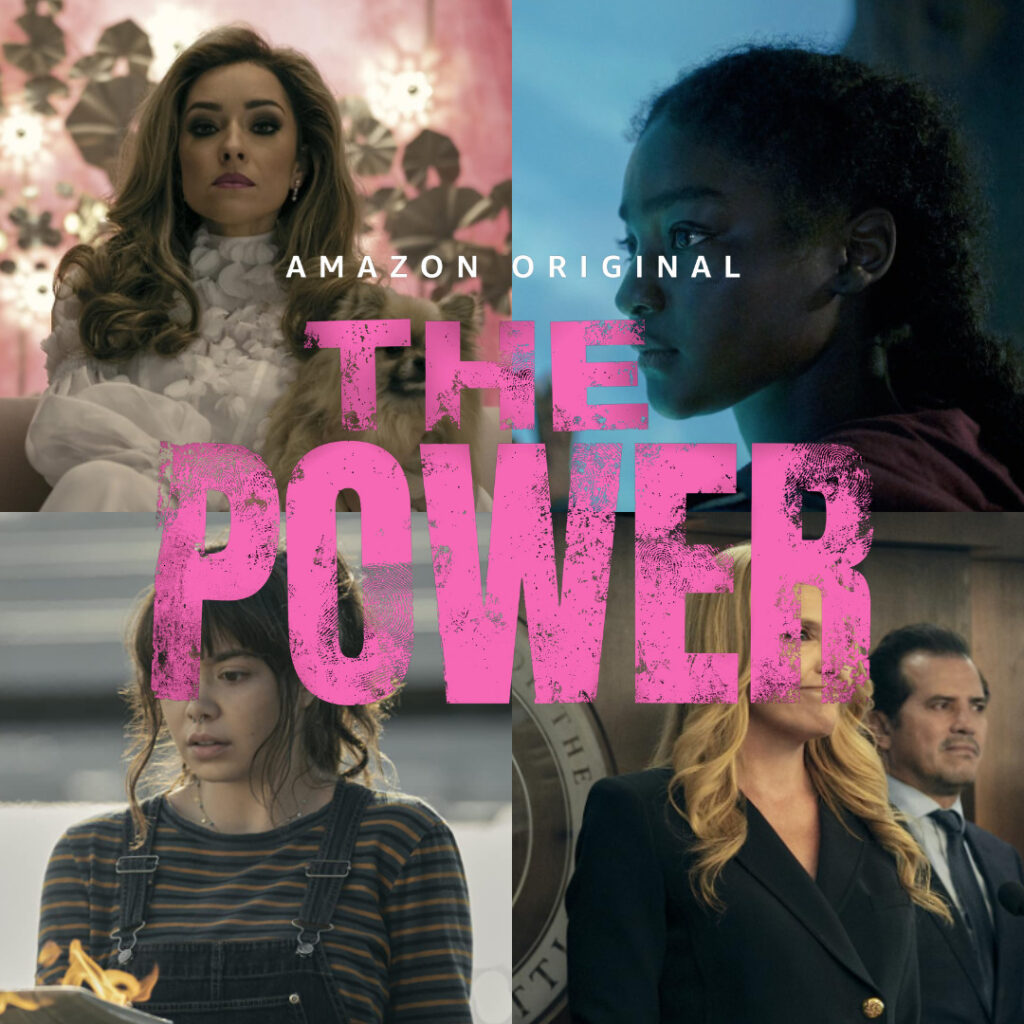On the 31st of March, the first three episodes of The Power aired on Amazon Prime. Based on the hugely successful novel by Naomi Alderman, The Power explores an alternative world where young women develop the ability to release electricity from their fingertips after the sudden awakening of the skein, a new organ that only women have. It’s quickly discovered that younger women can awaken the skein in older women, and soon almost half the population has this ability. Overnight, men become the ones who fear walking home alone and who feel the need to carry tasers and alarms. Women are suddenly the dominant sex.
I was a huge fan of the book, which won the Baileys Women’s Prize for Fiction, and was one of The New York Times’ 10 Best Books of 2017. However, despite the high-budget production and star-studded cast, I have been hugely disappointed with the lack of buzz around the show. The Power deals with so many relevant topics, providing a critical look at gender dynamics, bodily autonomy, and the radicalisation of young men.
We follow six main characters; five women and one man. Margot (Toni Collette), the mayor of Seattle and her daughter Jos (Auli’i Cravalho), Roxy (Ria Zmitrowicz), the daughter of a crime lord, Allie (Halle Bush), a teenager adopted by a deeply Christian couple, Tatiana (Zrinka Cvitešić), the wife of the president of the fictionalised Balkan country Carpathia, and Tunde (Tobheeb Jimoh), a journalist documenting the phenomenon across the world. The characters and their situations are diverse, exploring how this new ability would affect women across the world and analysing the reactions of different governments and people in power.
Bodily autonomy is a major plot point, and with the current political climate in the United States where abortion and transgender people are being criminalised, the show provides some powerful discussions and explorations. In episode six, the US government introduces new laws which force women to undergo examinations and testing to see if their skein has been activated. In an invasive procedure, women are given electrical shocks to try and cause a reaction from the skein. If they “fail” the test by having an active skein this is recorded, putting the woman’s safety at risk as the government attempts to criminalise anyone with the power. This is an interesting parallel to a recent bill passed in Florida, which criminalises trans people from using public bathrooms, forcing them to undergo invasive procedures such as genitalia exams and DNA testing if arrested. The Power doesn’t just depict cis women but also examines the impact on characters such as Jos’ boyfriend Ryan (Nico Hiraga), who is intersex and has a skein, and Sister Maria (Daniela Vega), a trans woman who is given the ability by Allie.
One of the show’s most shocking and powerful visuals comes in episode three: a wide shot of a school gymnasium full of girls in individual plastic pods, their hands zipped-tied together in rubber gloves as they wait for their parents to collect them. It’s a terrifyingly dystopian look at the treatment of young women who are being punished for changes happening to their bodies that are out of their control.
As the show goes on, men in power try their hardest to stop the development of the skein, and in the fifth episode, Carpathia releases medical research on the organ, which is available for countries to buy. The research was conducted on three women whose skeins were removed, resulting in their death. Despite knowing that these women were trafficking victims, every country buys the research. The Power provides a gruesome examination of the treatment of women’s bodies in society; that they are expendable and need to be controlled.
The critical exploration of gender dynamics in the show provides a realistic look at how normalised sexism is within our society. From Roxy forcing the male bouncer at a nightclub to smile at her before she enters to Jos revealing to her mother how much safer she feels with her power, the gender-reversal forces the audience to truly examine everyday sexism by presenting such an extreme power swap.
The Power also explores the radicalisation of young men through Matt Cleary-Lopez (Gerrison Machado), the youngest son of Margot. When his sister sends him to the hospital after accidentally electrocuting him during a fight over the TV remote, Matt becomes a keen follower of UrbanDox, the anonymous leader of a misogynistic hate group who hides behind an AI animation. Parallels can be made between UrbanDox and Andrew Tate, as both figures create sexist content and promote the need to return to “traditional” gender roles to their millions of followers. I thought the show perfectly illustrated just how easy it is for young men such as Matt to be radicalised by these figures. A survey conducted by Hope not hate for the Independent found that eight in ten boys aged between 16 and 17 in the UK had consumed content made by Andrew Tate.
The Power is a superb adaptation, examining various topics that need urgent attention, and I believe the show deserves more appreciation. Although it has received many positive reviews, the show also has hundreds of one-star reviews across IMDB and Amazon, with comments such as “riding the feminist wave”, “political-ideological rubbish”, and “pushing an agenda with every scene”. The gender pay gap is widening, and sexism in society is getting worse, and we need media like The Power to question gender roles and provide important examinations of gender oppression.
